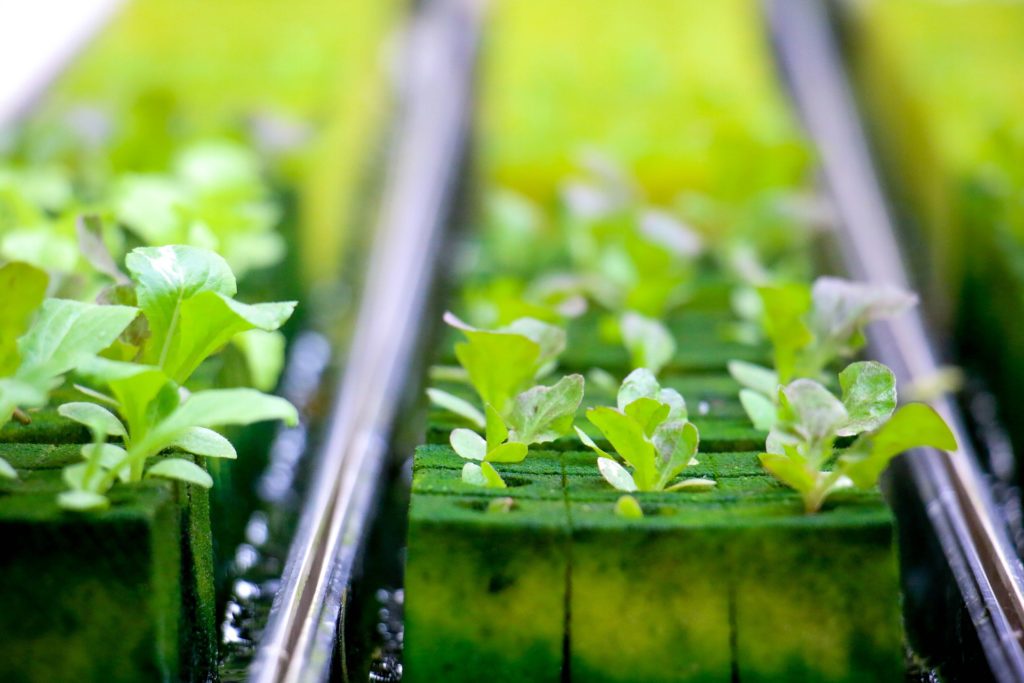The key output of the Agricultural Voices Syria project was a podcast series, formed of 15 episodes. A different Syrian Agricultural Expert created each episode, which relates to their area of expertise.
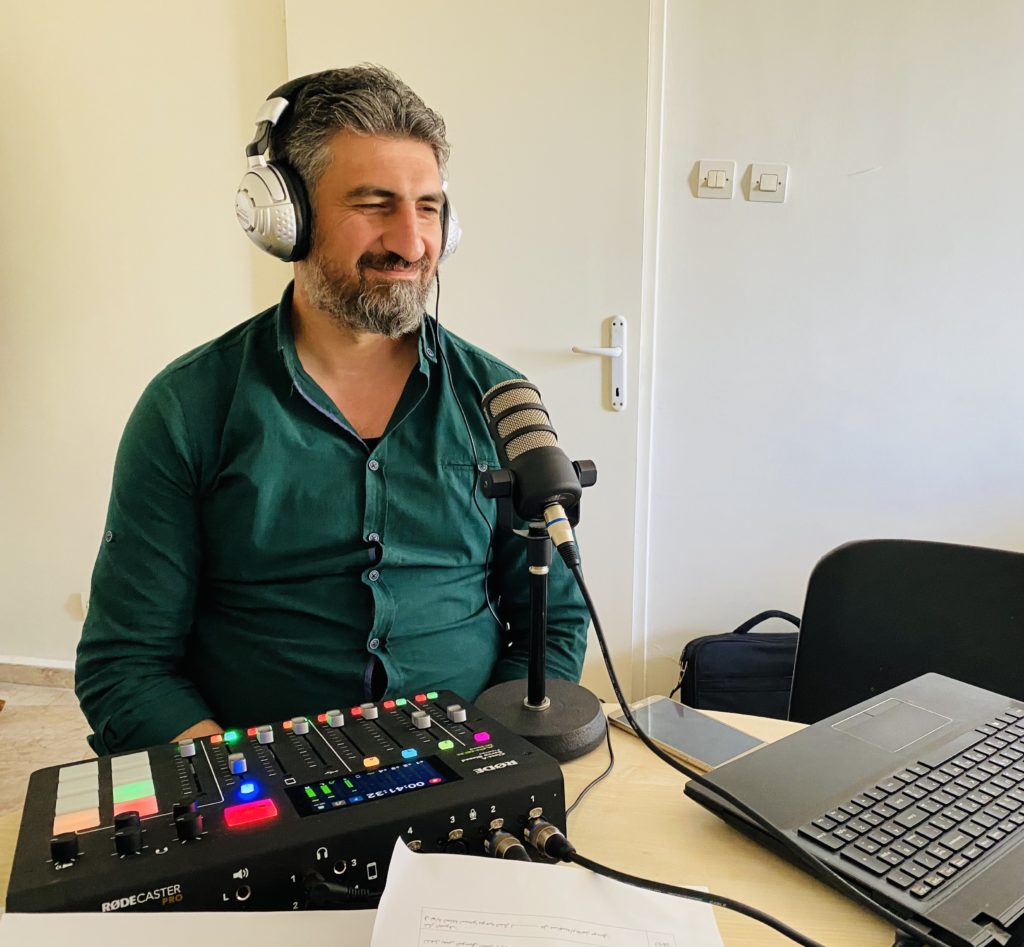
The Host
Eng. Zuhier Agha
Eng. Zuhier Agha is an expert in crop and vegetable production. He graduated from Aleppo University, Agriculture Faculty in 2002. He has worked in the field of agricultural inputs marketing, and as a consultant at local and international agricultural inputs companies. He has significant experience in agricultural extension and project management. He contributes to support and research development as an essential way to improve agriculture and food security especially in the current conflict context in Syria.
Episode 1- Alternative crops and their economic importance
Featuring Prof. Abdul Aziz Dayub
Prof. Abdul Aziz Dayub is the former Dean of the Horticulture Department at Aleppo University. His experience includes horticulture sciences, vegetable growing and medicinal plants. This episode discusses alternative crops, including anise, cumin, fennel, fenugreek, coriander, soybean, saffron and lentils, and offers guidance on their cost and cultivation. The episode also gives an overview of the difficulties facing cotton producers in Syria.
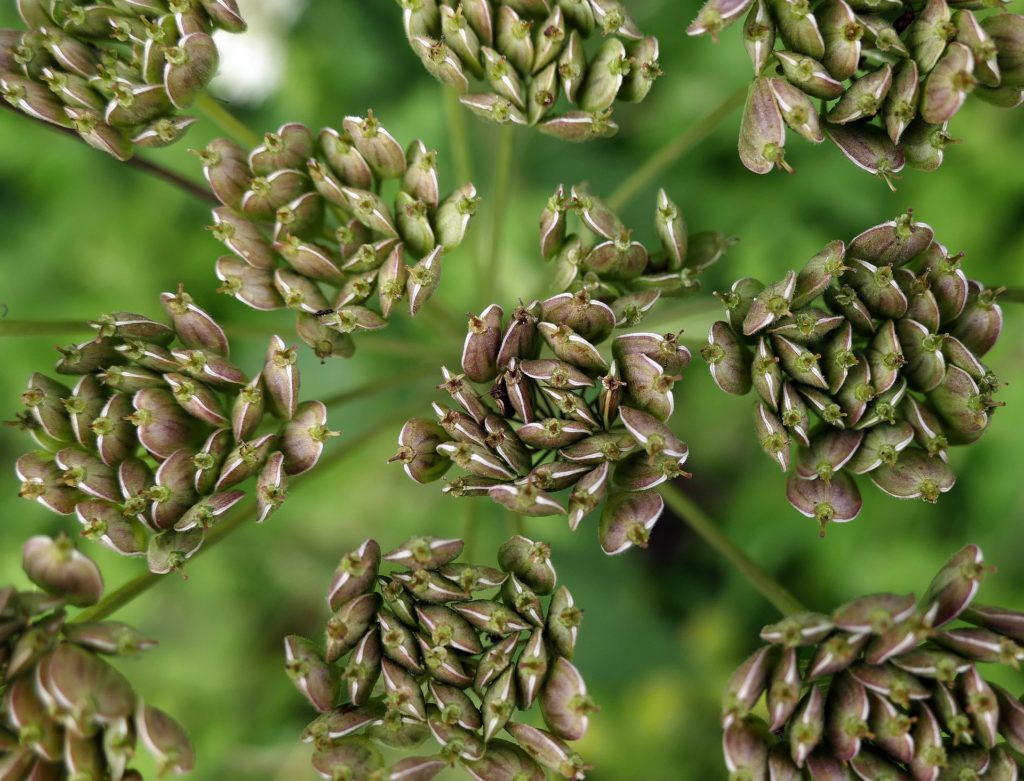

Episode 2 – Vegetable irrigation and fertilisation
Featuring Eng. Anas Abo Tarbosh and Eng. Anas Janaan
Eng. Anas Abo Tarbosh has a background in crop production, particularly vegetable and wheat growing. His section of the episode focuses on the irrigation and fertilisation of tomatoes and cucumbers. Eng. Anas Janaan is experienced in horticulture sciences, compost production and vegetable growing. His section of the podcast offers advice on the irrigation and fertilisation of aubergines and peppers.
Episode 3 – Irrigation and fertilisation of wheat and potato crops
Featuring Eng. Malik Khatib
Eng. Malik Khatib is an expert in agricultural extension and crop production, particularly wheat and cereals. His episode covers how to grow wheat and potato crops successfully. He discusses the various irrigation and fertilisation techniques available to farmers. He includes specific advice on which fertilisers to use, when to use them, and how much water the crops need.
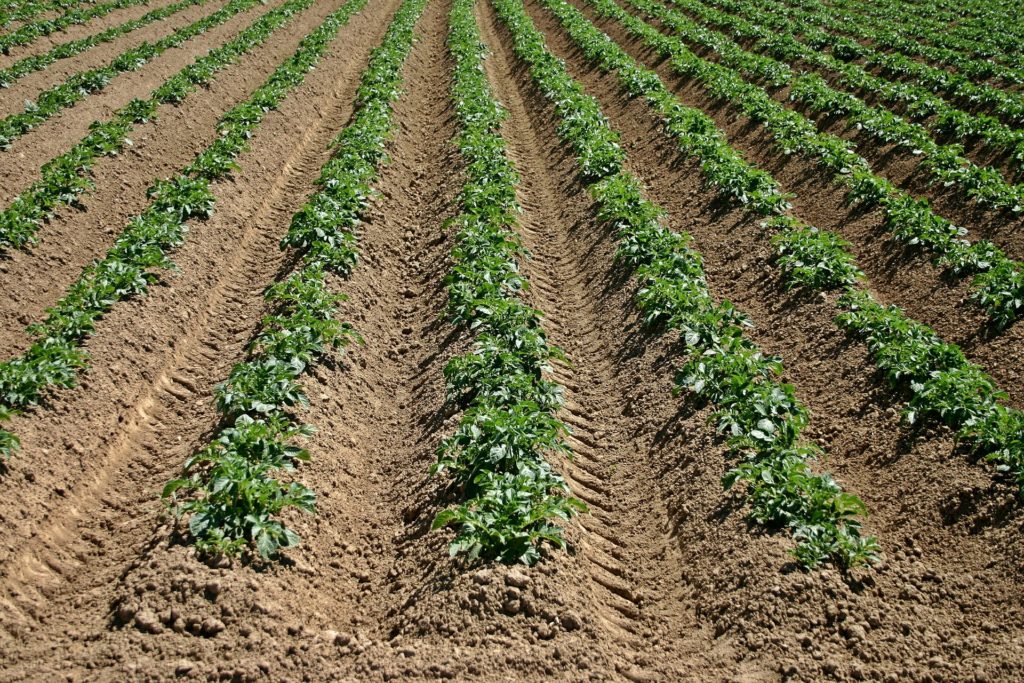
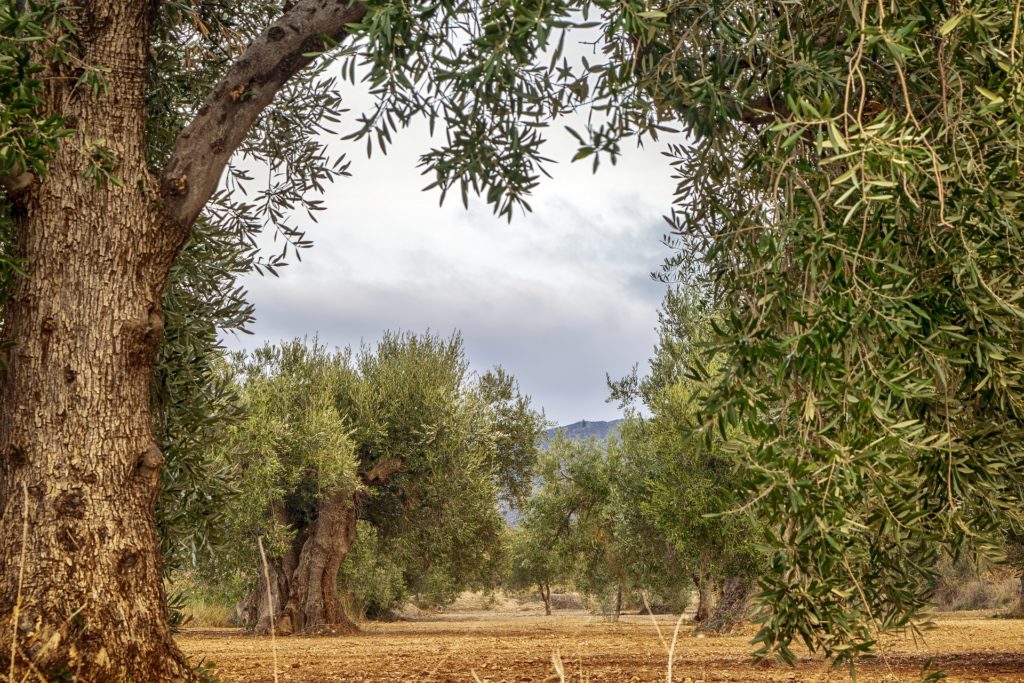
Episode 4 – Irrigation and fertilisation of olive trees
Featuring Eng. Ammar Juneid
An experienced documentary producer, Eng. Ammar Juneid also has a great deal of knowledge of crop production and agricultural extension. This episode focuses on the irrigation and fertilisation of olive trees, covering how to establish what kind of fertiliser different types of soil need, and how best to irrigate olive trees. Eng. Ammar Juneid also answers some questions from olive growers.
Episode 5 – Methods of soil preparation and vitality improvement
Featuring Dr. Esraa Almashhour
A researcher with experience in soil sciences, agriculture and food security, gender aspects and crop and vegetable growing, Dr Esraa Almashhour’s episode focuses on soil fertility. She explains the features of healthy soil, such as ventilation, soil structure and acidity, and their importance. She explains the new no-tillage method of farming, known as conservation agriculture, and discusses the benefits this method has on soil health and vitality.
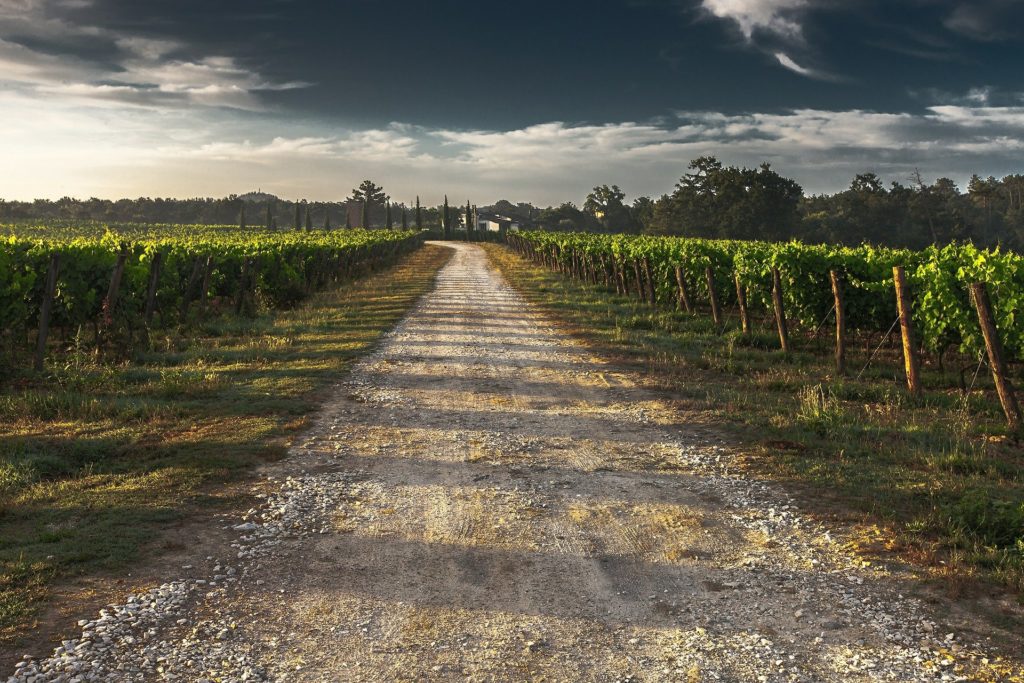
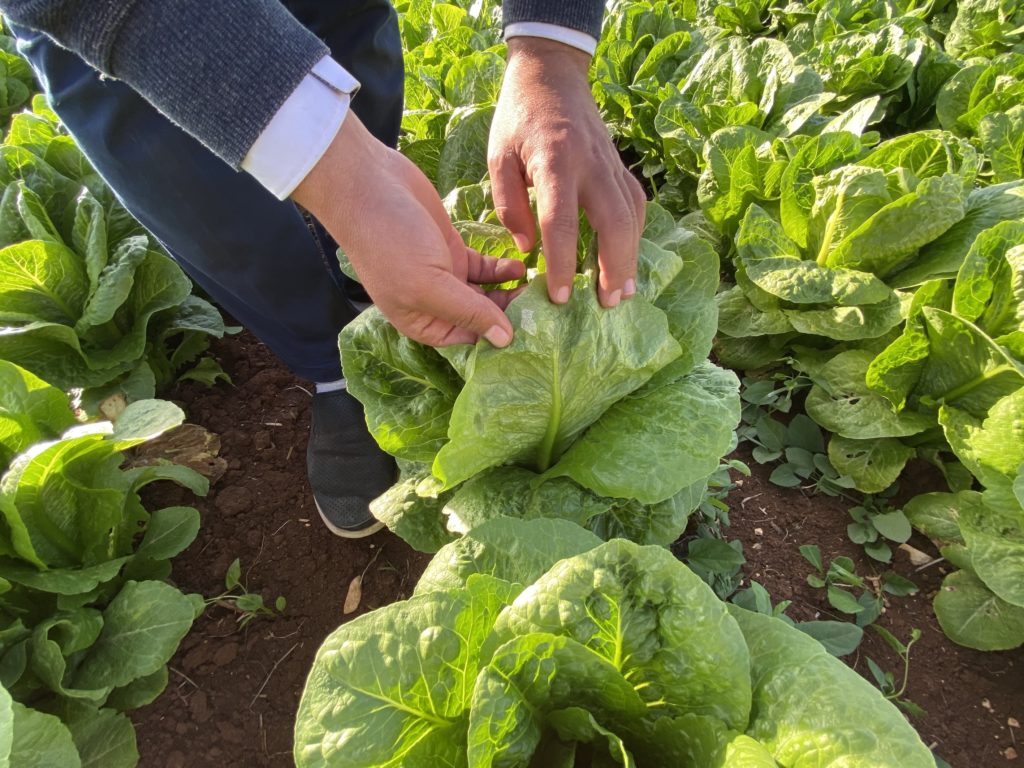
Episode 6 – Diseases affecting vegetables and recommendations for integrated control
Featuring Eng. Maher Kuraitpy
This episode features Eng. Maher Kuraitpy, who is an experienced producer of vegetables. His episode informs listeners of the most common diseases and pests that affect cucumbers and tomatoes. The episode covers how to spot the various ailments and suggests prevention and treatment for each of them. He also provides some information on how to mix pesticides safely.
Episode 7 – Crop diseases and recommendations for integrated control
Featuring Dr. Khalid Alhasan
Dr Khalid Alhasan has a background in project management and crop production, specialising in wheat and potato crops. His episode begins by emphasising the importance of wheat and potatoes in Syria. He then offers some guidance on successfully growing these crops yourself, suggesting how to avoid and treat the most common diseases that affect them.
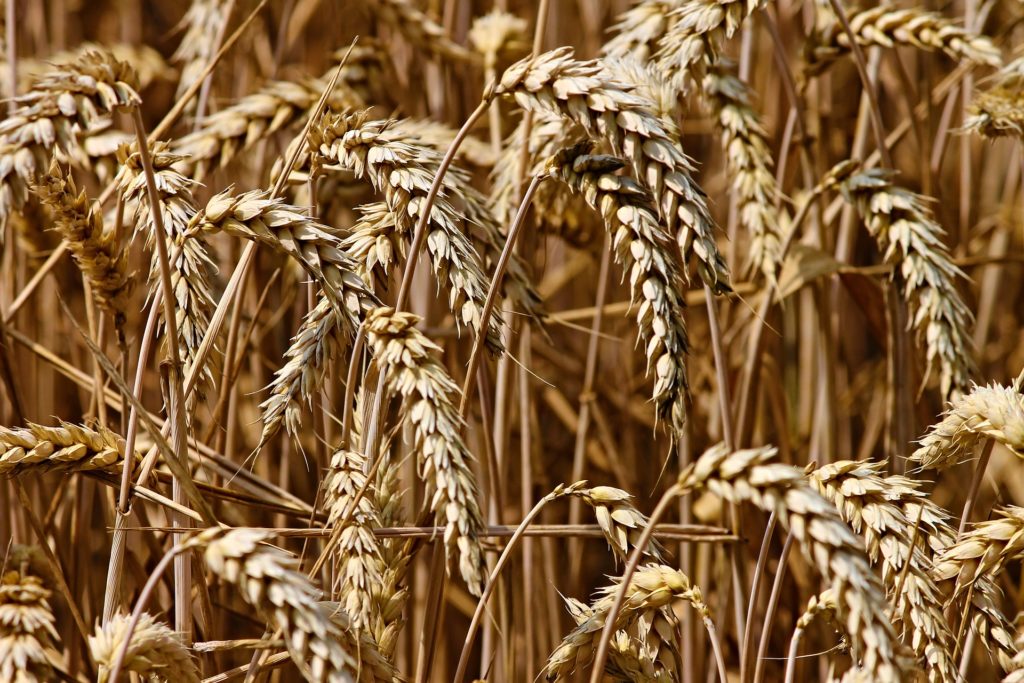
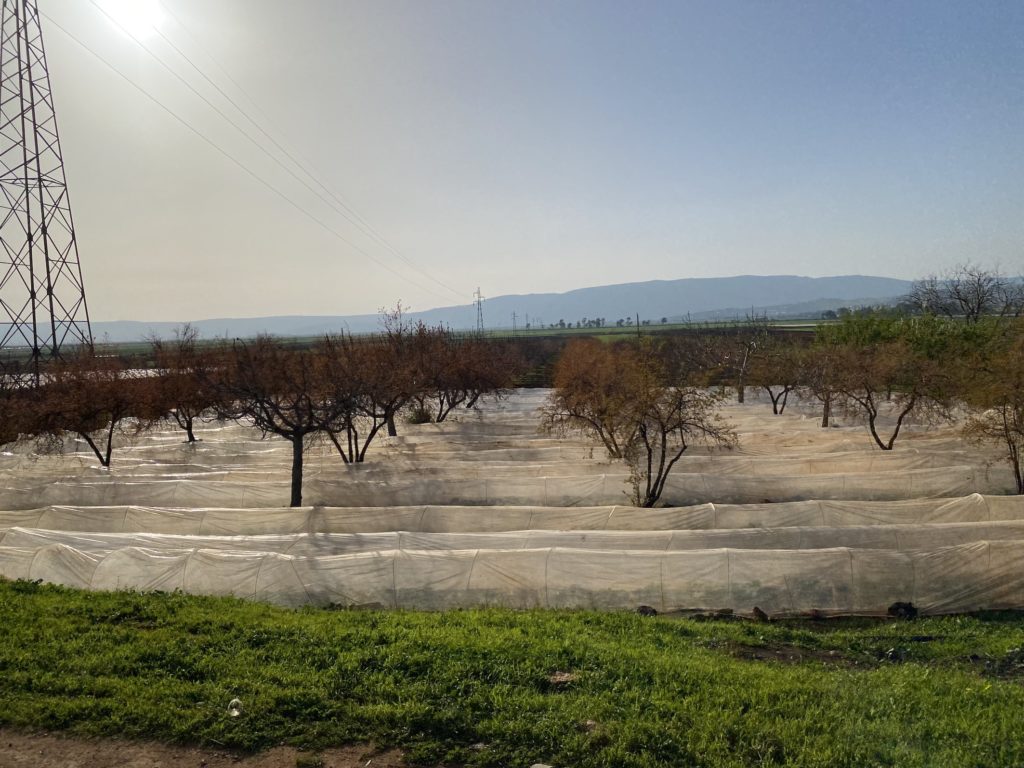
Episode 8 – Diseases in fruit crops and recommendations for integrated control
Featuring Eng. Zuhier Agha
This episode discusses the most common diseases and pests that affect olive trees. It is presented by Eng. Zuhier Agha, who is an experienced adviser and consultant with a knowledge of agricultural extension and agricultural inputs marketing. He discusses the symptoms of various diseases and how to treat and prevent them. He also describes the insects that can harm olive trees, and how to avoid them affecting a tree’s health.
Episode 9 – Home-made methods of preserving and processing vegetables
Featuring Eng. Kifah Alazawi
An expert in food processing with a great deal of experience in growing vegetables, Eng. Kifah Alazawi how to preserve and process vegetables in this episode. She explains the various methods of preserving vegetables, discusses their advantages and disadvantages, and suggests which options would best suit those grown in Syria.
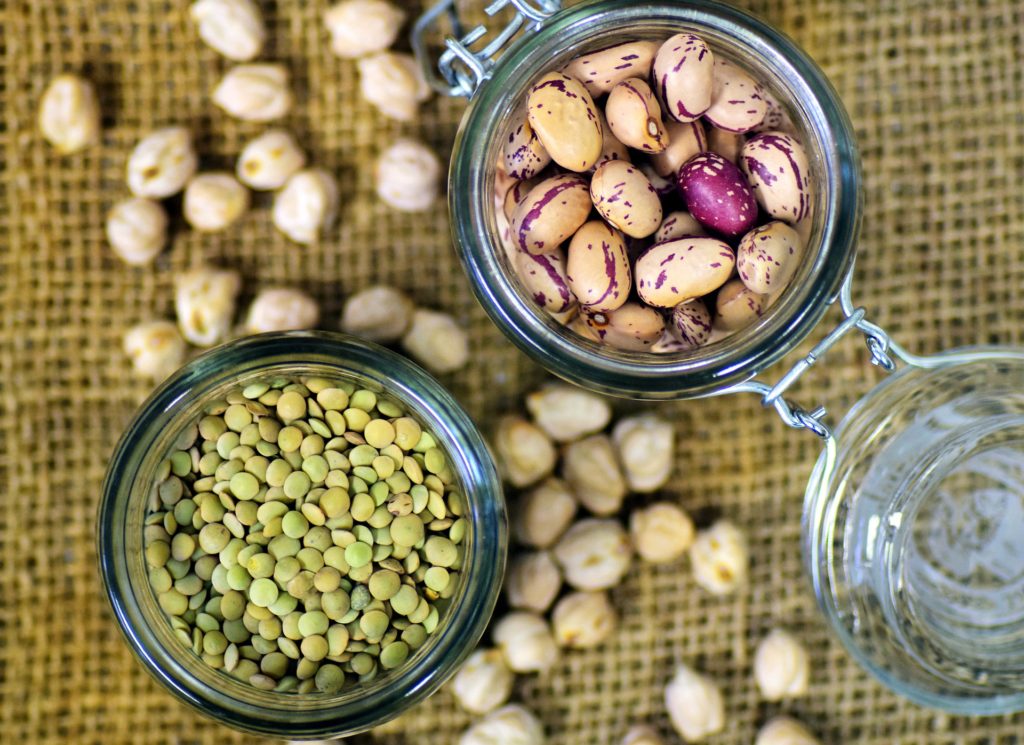
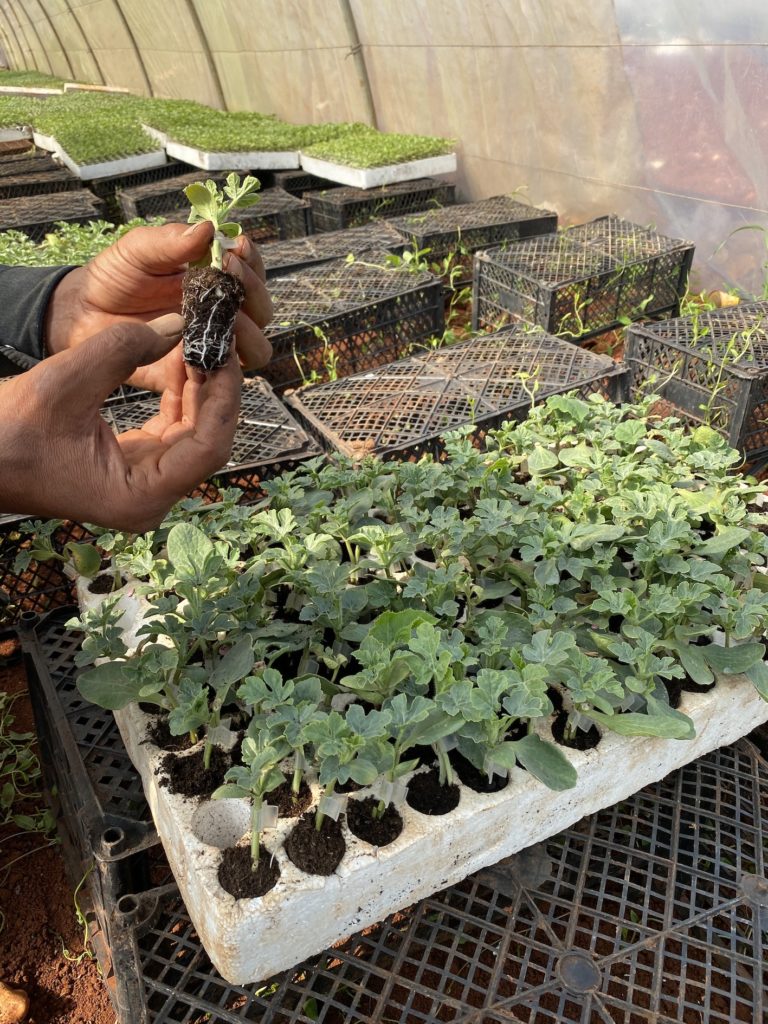
Episode 10 – Recommendations for producing quality vegetable seedlings
Featuring Dr. Rida Draie
Dr Rida Draie is a researcher in plant biology and horticulture sciences. His episode offers advice on how to produce quality vegetable seedlings. He explains the benefits of raising seedlings in a protected environment and covers the various methods and structures people create to grow seedlings. This episode ends with a brief discussion on grafting vegetables. He explains the history of grafting vegetables and the conditions required to successfully graft plants together.
Episode 11 – Organic fertilisers and compost production
Featuring Dr. Manaf Aldakhil
This episode focuses on the production of compost and the use of organic fertilisers. The author is Dr Manaf Aldakhil a researcher in food security, natural resources and vegetable growing. He explains the benefits of organic fertilisers, both for the environment and for the farmer, and clarifies the differences between each of the organic fertilisers. Then, he explains how argricultural workers can produce compost that is rich in nutrients and free from disease on their own farms.
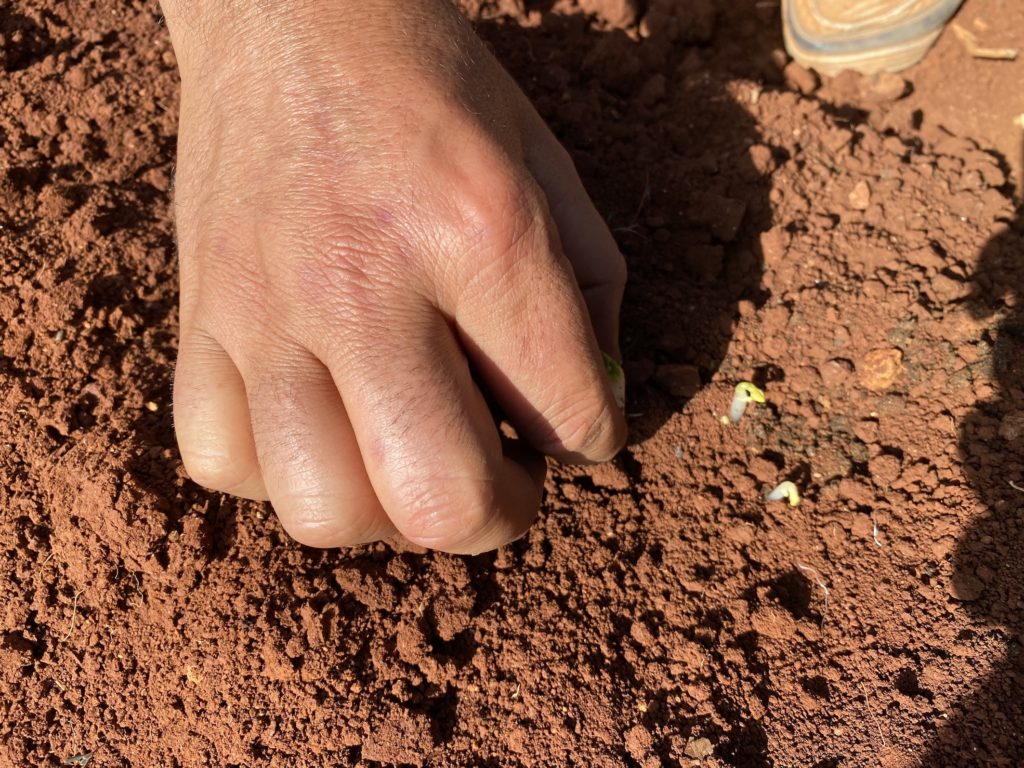
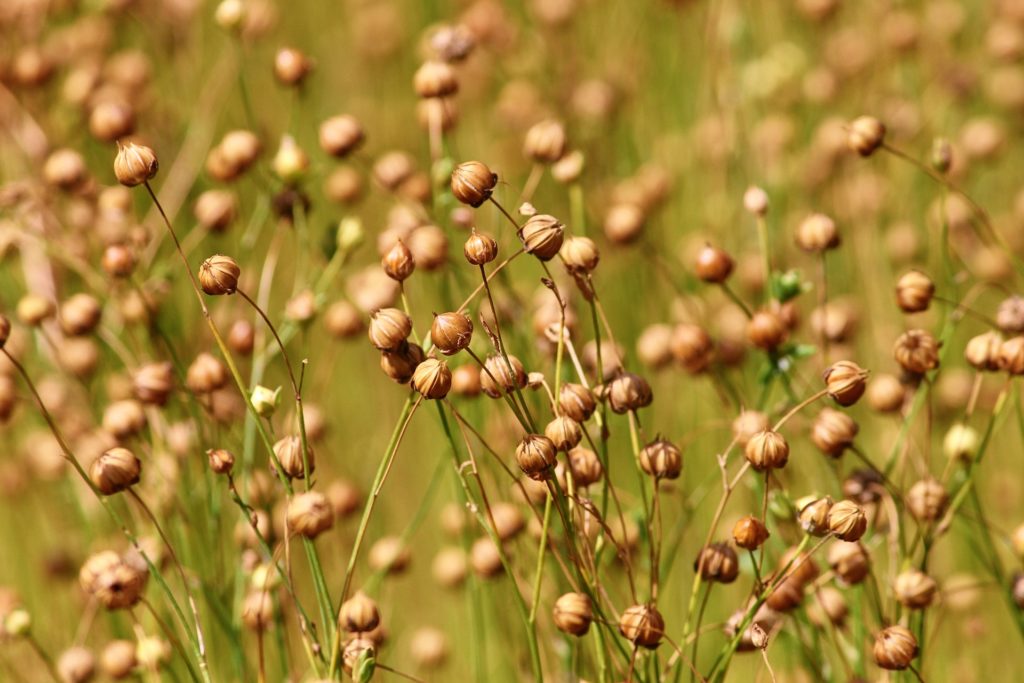
Episode 12 – Methods of seed production and preservation of local vegetables
Featuring Dr. Abdulmonem Alabboud
A researcher in agricultural services, wheat breeding and crop production, Dr Abdulmonem Alabboud, presents this episode on seed production methods. He emphasises the importance of preserving local plant species and the disadvantages of mass-produced hybridised seeds. He explains how to successfully grow and collect seed from several common plants, including tomatoes, aubergines and peppers.
Episode 13 – Olive products and methods of quality improvement
Featuring Eng. Anas Alhasan
Eng. Anas Alhasan is an experienced olive grower with a background in horticulture sciences and team and farmer groups consultancy and leading. His episode explains how to grow and create high quality olive products. He covers how each stage of olive production, that is, the growth of the group, the storage, pressing and manufacture, can affect the quality of the final product. He also clarifies what characteristics experts use to grade olive oil.
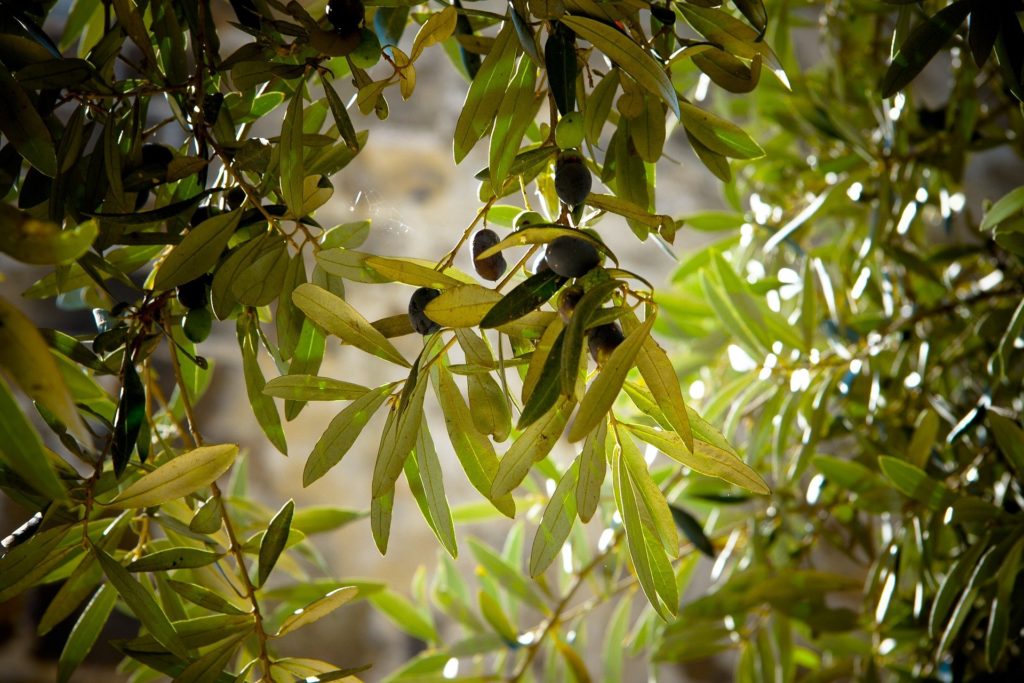
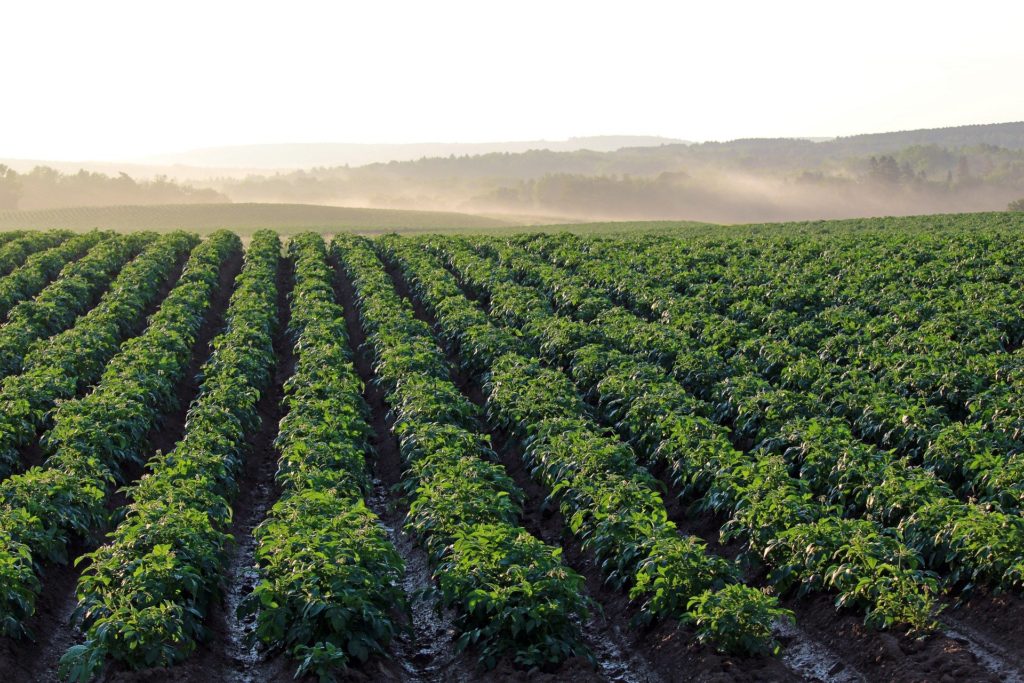
Episode 14 – Cultivation systems – integrated management of Nigella seeds
Featuring MSc. Mohamed Wesam Abd Alaal
MSc. Mohamed Wesam Abd Alaal is a researcher in the fields of food security, hydroponics and crop production. His episode focuses on nigella seed. In great detail, he covers all the conditions that this crop needs to thrive, including when and how to plant the crop, the possible irrigation methods, the best fertilisers to use, how to prevent pests and diseases and how to harvest it.
Episode 15 – Hydroponics – cultivations systems and their importance
Featuring Dr. Shaher Abdullateef
In this episode, Dr Shaher Abdullateef discusses the importance of cultivation systems, focussing especially on hydroponics. He has a background in food security and livelihoods, horticulture sciences and biotechnology, as well as governance and strategic planning. He is a great advocate of no soil farming, or hydroponics, and explains the benefits of this system. The episode also covers the various methods of hydroponics and how agricultural workers can implement hydroponics on their own farms.
